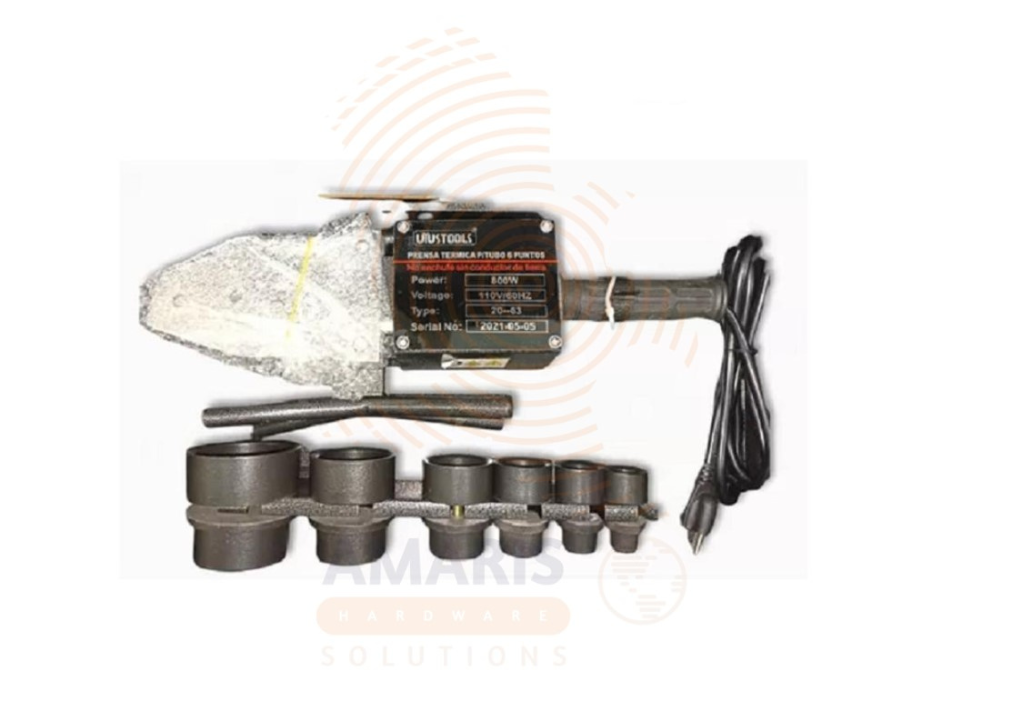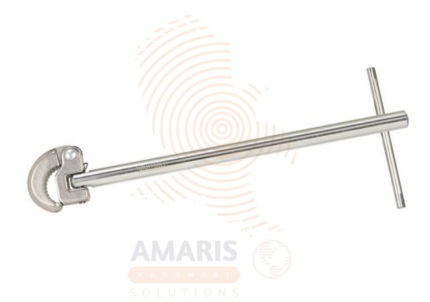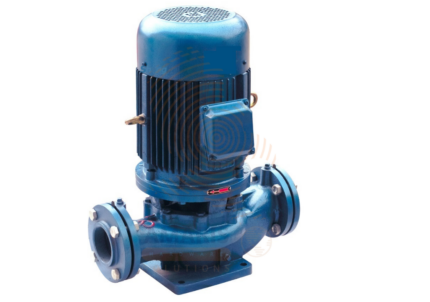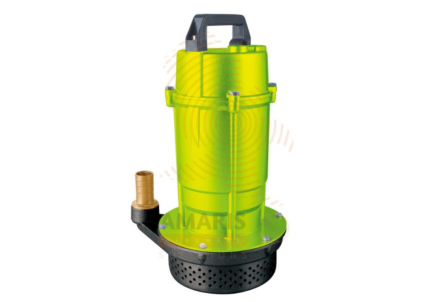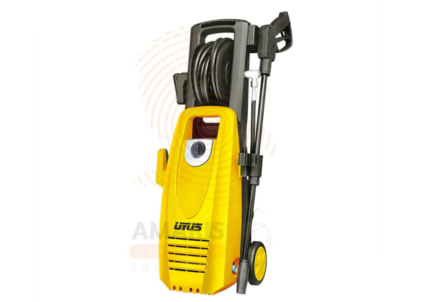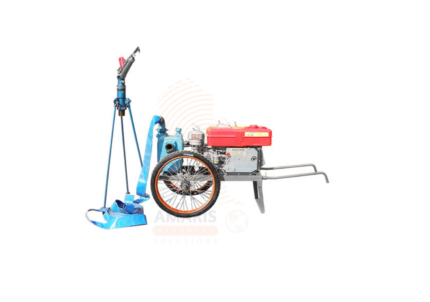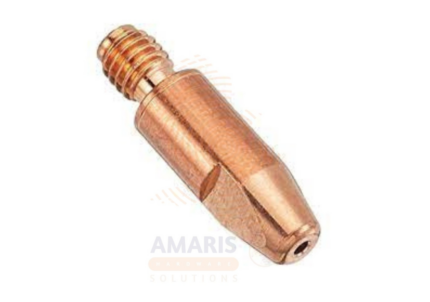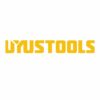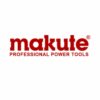

Plastic Pipe Welding Set
$65.00 Original price was: $65.00.$61.75Current price is: $61.75.
A plastic pipe welding set is a specialized equipment kit designed for joining or fusing plastic pipes through heat and pressure. It typically includes a welding machine, heating element, and various accessories required for the fusion process. The machine heats the ends of the plastic pipes to a molten state, and then they are pressed together to form a strong and durable bond as the material cools and solidifies. This welding process is commonly used in construction, plumbing, and other industries where plastic pipes are utilized for fluid or gas conveyance. The welding set ensures a secure and leak-free connection between plastic pipes, contributing to the overall integrity and reliability of the piping system.
Table of Contents
TogglePlastic Pipe Welding Set
Uses
-
Construction and Plumbing:
-
Joining plastic pipes in residential, commercial, and industrial construction for water supply, drainage, and sewer systems.
-
Plumbing installations where plastic pipes are preferred for their corrosion resistance and ease of installation.
-
-
Infrastructure Projects:
-
Municipal projects involving the installation of plastic pipes for water and wastewater management.
-
Underground and above-ground infrastructure projects, such as tunnels and bridges, where plastic pipes are used for their durability and resistance to corrosion.
-
-
Chemical and Industrial Applications:
-
Chemical processing plants where plastic pipes are used to transport various chemicals.
-
Industrial facilities using plastic pipes for conveying gases, acids, and other corrosive substances.
-
-
Oil and Gas Industry:
-
Applications in the oil and gas sector where plastic pipes are used for transporting fluids and gases.
-
Onshore and offshore installations requiring reliable and durable connections for plastic pipelines.
-
-
Utilities and Utilities Maintenance:
-
Repair and maintenance of utility pipelines, including gas and water distribution systems.
-
Emergency repairs to plastic pipes in utilities infrastructure.
-
-
Agricultural Irrigation:
-
Agricultural irrigation systems that utilize plastic pipes for water distribution.
-
Joining pipes for efficient and reliable water supply to fields and crops.
-
-
Geothermal Systems:
-
Geothermal heating and cooling systems using plastic pipes for heat exchange.
-
Fusion of plastic pipes for underground geothermal loop installations.
-
-
Landscaping and Drainage:
-
Landscaping projects using plastic pipes for irrigation and drainage.
-
Joining pipes for efficient water management in gardens, parks, and recreational areas.
-
-
Telecommunications:
-
Installation of plastic conduit pipes for protecting and organizing telecommunication cables.
-
Fusion of plastic conduit pipes in the construction of underground communication networks.
-
-
Aquaculture and Fish Farming:
-
Use of plastic pipes in aquaculture systems for water supply and circulation.
-
Joining pipes to create efficient water flow in fish farming operations.
-
Safety Precautions
-
Training and Certification:
-
Ensure that operators using the plastic pipe welding set are trained and certified in the proper use of the equipment.
-
Familiarize operators with the specific features, controls, and safety protocols of the welding set.
-
-
Personal Protective Equipment (PPE):
-
Wear appropriate personal protective equipment, including safety goggles or a face shield, gloves, and heat-resistant clothing.
-
Use welding helmets or face shields to protect the face and eyes from sparks, hot plastic, and ultraviolet radiation.
-
-
Ventilation:
-
Work in well-ventilated areas or use local exhaust ventilation systems to minimize exposure to fumes and gases produced during the welding process.
-
-
Fire Safety:
-
Keep fire extinguishers nearby and ensure that they are in good working condition.
-
Avoid welding near flammable materials, and have a designated area for fire-safe welding operations.
-
-
Equipment Inspection:
-
Regularly inspect the plastic pipe welding set for any damaged or worn-out parts.
-
Ensure that all electrical components are in good condition to prevent electrical hazards.
-
-
Electrical Safety:
-
Use grounded electrical outlets and ensure that the welding machine is properly grounded.
-
Avoid using damaged power cords, and if any issues are identified, repair or replace them immediately.
-
-
Workspace Organization:
-
Keep the workspace clean and organized to prevent tripping hazards.
-
Store tools and equipment properly when not in use to avoid accidents.
-
-
Emergency Procedures:
-
Establish and communicate emergency procedures, including the location of first aid kits, emergency exits, and assembly points.
-
Train personnel on how to respond to potential emergencies such as fires or injuries.
-
-
Proper Handling of Hot Equipment:
-
Allow equipment to cool down before attempting any maintenance or adjustments.
-
Use insulated tools when handling hot components, and be cautious to prevent burns.
-
-
Avoiding Contact with Hot Surfaces:
-
Be aware of hot surfaces, especially the heated elements of the welding set.
-
Use insulated handles or wear heat-resistant gloves when handling hot components.
-
-
Preventing Electrical Shocks:
-
Avoid contact with water or wet surfaces while operating the welding set to prevent electrical shocks.
-
Inspect cables for any signs of damage and replace them if needed.
-
-
Read and Follow Manufacturer's Instructions:
-
Adhere to the manufacturer's guidelines and instructions for the specific plastic pipe welding set being used.
-


 Acrylic Sealants
Acrylic Sealants Construction Adhesives
Construction Adhesives Double-Sided Tape
Double-Sided Tape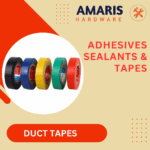 Duct Tape
Duct Tape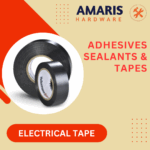 Electrical Tape
Electrical Tape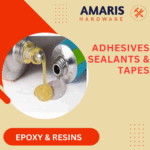 Epoxy & Resins
Epoxy & Resins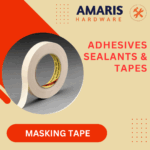 Masking Tape
Masking Tape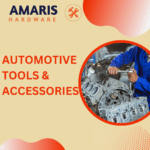
 Automotive Wrenches & Socket Sets
Automotive Wrenches & Socket Sets Battery Chargers & Jump Starters
Battery Chargers & Jump Starters Car Jacks & Stands
Car Jacks & Stands Car Wash & Detailing Products
Car Wash & Detailing Products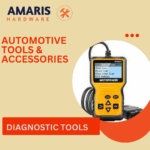 Diagnostic Tools
Diagnostic Tools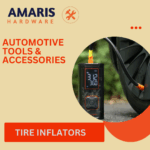 Tire Inflators
Tire Inflators Vehicle Lighting
Vehicle Lighting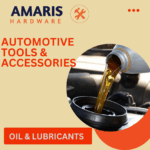 Oil & Lubricants
Oil & Lubricants
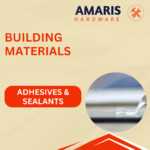 Adhesives & Sealants
Adhesives & Sealants Bricks & Blocks
Bricks & Blocks Cement & Concrete
Cement & Concrete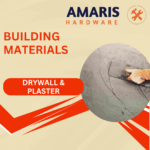 Drywall & Plaster
Drywall & Plaster Flooring (Tiles, Wood, Laminate)
Flooring (Tiles, Wood, Laminate) Lumber & Plywood
Lumber & Plywood Paints, Primers & Coatings
Paints, Primers & Coatings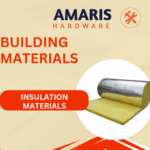 Insulation Materials
Insulation Materials Roofing Materials
Roofing Materials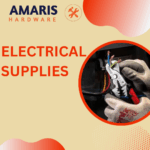
 Circuit Breakers
Circuit Breakers Electrical Cables & Wires
Electrical Cables & Wires Switches & Sockets
Switches & Sockets Fuses & Relays
Fuses & Relays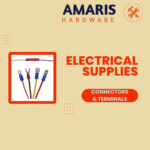 Connectors & Terminals
Connectors & Terminals Electrical Boxes & Panels
Electrical Boxes & Panels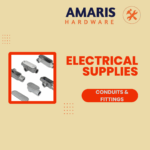 Conduit & Fittings
Conduit & Fittings Lighting Fixtures & Bulbs
Lighting Fixtures & Bulbs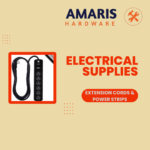 Extension Cords & Power Strips
Extension Cords & Power Strips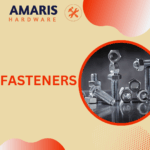
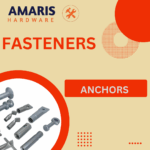 Anchors
Anchors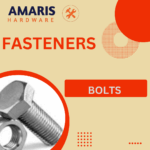 Bolts
Bolts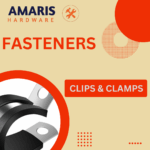 Clips & Clamps
Clips & Clamps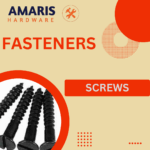 Screws
Screws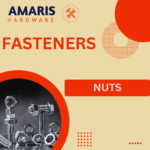 Nuts
Nuts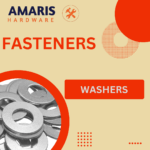 Washers
Washers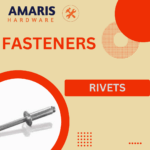 Rivets
Rivets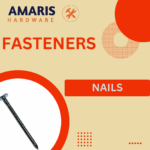 Nails
Nails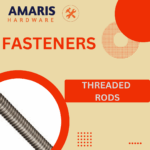 Threaded Rods
Threaded Rods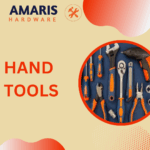
 Hammers
Hammers Measuring Tools (Tapes, Levels, Calipers)
Measuring Tools (Tapes, Levels, Calipers) Screwdrivers
Screwdrivers Pliers & Cutters
Pliers & Cutters Saws & Blades
Saws & Blades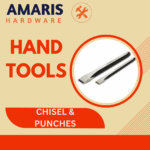 Chisels & Punches
Chisels & Punches Allen Keys & Hex Keys
Allen Keys & Hex Keys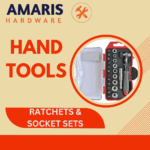 Ratchets & Socket Sets
Ratchets & Socket Sets Wrenches & Spanners
Wrenches & Spanners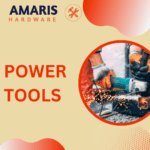
 Power Tool Accessories (Blades, Bits, Discs)
Power Tool Accessories (Blades, Bits, Discs)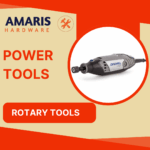 Rotary Tools
Rotary Tools Saws (Circular, Jigsaw, Reciprocating)
Saws (Circular, Jigsaw, Reciprocating) Drills & Drivers
Drills & Drivers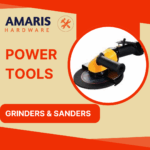 Grinders & Sanders
Grinders & Sanders Heat Guns
Heat Guns Nail Guns
Nail Guns Impact Wrenches
Impact Wrenches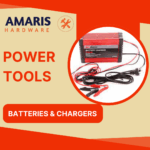 Batteries & Chargers
Batteries & Chargers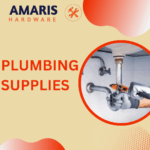
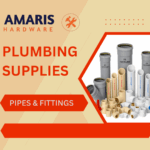 Pipes & Fittings (PVC, Copper, PEX)
Pipes & Fittings (PVC, Copper, PEX)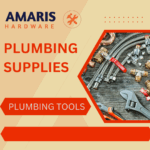 Plumbing Tools
Plumbing Tools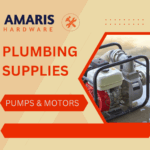 Pumps & Motors
Pumps & Motors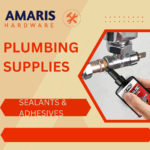 Sealants & Adhesives for Plumbing
Sealants & Adhesives for Plumbing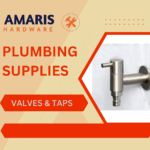 Valves & Taps
Valves & Taps Water Heaters
Water Heaters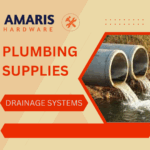 Drainage Systems
Drainage Systems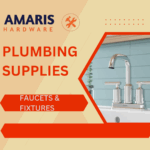 Faucets & Fixtures
Faucets & Fixtures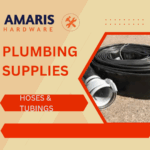 Hoses & Tubing
Hoses & Tubing
 Hinges & Latches
Hinges & Latches Hooks & Brackets
Hooks & Brackets Window Hardware
Window Hardware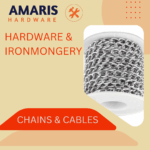 Chains & Cables
Chains & Cables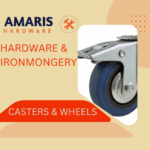 Casters & Wheels
Casters & Wheels Shelving & Storage Systems
Shelving & Storage Systems Door Handles & Locks
Door Handles & Locks Drawer Slides & Cabinet Hardware
Drawer Slides & Cabinet Hardware
 Personal Protective Equipment (PPE)
Personal Protective Equipment (PPE)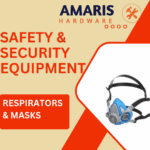 Respirators & Masks
Respirators & Masks Safety Glasses
Safety Glasses Safes
Safes Security Cameras
Security Cameras Gloves
Gloves Helmets
Helmets Ear Protection
Ear Protection Fire Safety Equipment
Fire Safety Equipment Locks & Padlocks
Locks & Padlocks Motion Sensors & Alarms
Motion Sensors & Alarms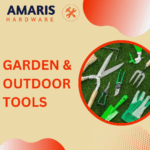
 Garden Fencing
Garden Fencing Garden Furniture Hardware
Garden Furniture Hardware Lawn Mowers
Lawn Mowers Trimmers & Edgers
Trimmers & Edgers Shovels & Spades
Shovels & Spades Rakes & Hoes
Rakes & Hoes Pruning Shears & Loppers
Pruning Shears & Loppers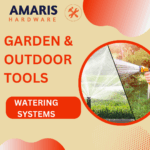 Watering Systems (Hoses, Sprinklers, Nozzles)
Watering Systems (Hoses, Sprinklers, Nozzles)
 Interior Paints
Interior Paints Paint Brushes & Rollers
Paint Brushes & Rollers Paint Strippers & Thinners
Paint Strippers & Thinners Paint Trays & Accessories
Paint Trays & Accessories Exterior Paints
Exterior Paints Spray Paints
Spray Paints Primers & Undercoats
Primers & Undercoats Varnishes & Stains
Varnishes & Stains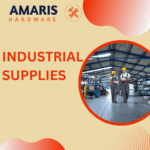
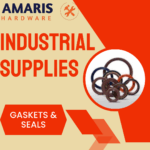 Gaskets & Seals
Gaskets & Seals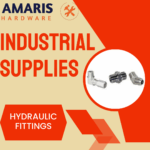 Hydraulic Fittings
Hydraulic Fittings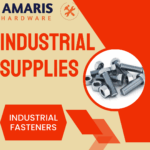 Industrial Fasteners
Industrial Fasteners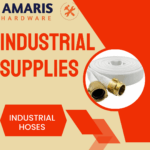 Industrial Hoses
Industrial Hoses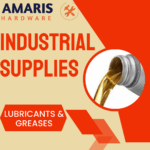 Lubricants & Greases
Lubricants & Greases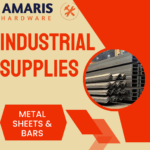 Metal Sheets & Bars
Metal Sheets & Bars Bearings & Bushings
Bearings & Bushings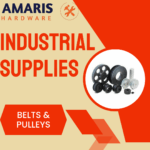 Belts & Pulleys
Belts & Pulleys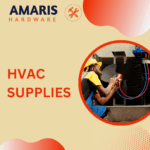
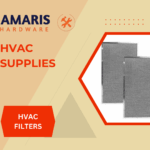 HVAC Filters
HVAC Filters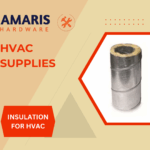 Insulation for HVAC
Insulation for HVAC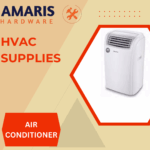 Air Conditioners
Air Conditioners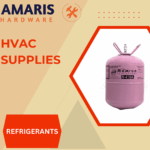 Refrigerants
Refrigerants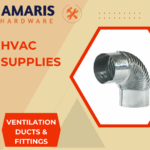 Ventilation Ducts & Fittings
Ventilation Ducts & Fittings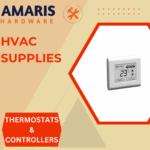 Thermostats & Controllers
Thermostats & Controllers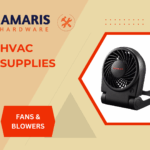 Fans & Blowers
Fans & Blowers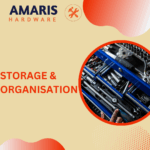
 Pegboards & Hooks
Pegboards & Hooks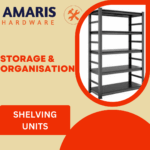 Shelving Units
Shelving Units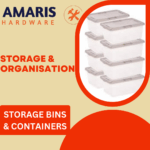 Storage Bins & Containers
Storage Bins & Containers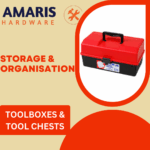 Toolboxes & Tool Chests
Toolboxes & Tool Chests Workbenches
Workbenches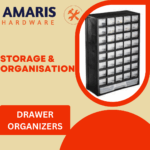 Drawer Organizers
Drawer Organizers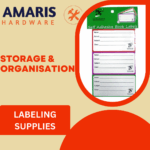 Labeling Supplies
Labeling Supplies
 Welding Accessories (Clamps, Brushes)
Welding Accessories (Clamps, Brushes) Welding Electrodes & Rods
Welding Electrodes & Rods Welding Helmets & Gloves
Welding Helmets & Gloves Welding Machines
Welding Machines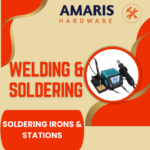 Soldering Irons & Stations
Soldering Irons & Stations Flux & Solder Wire
Flux & Solder Wire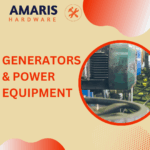
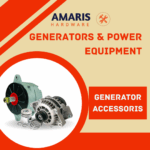 Generator Accessories
Generator Accessories Inverters
Inverters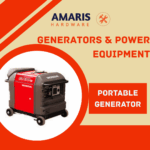 Portable Generators
Portable Generators Power Inverters
Power Inverters Transfer Switches
Transfer Switches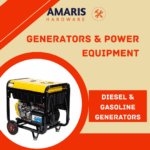 Diesel & Gasoline Generators
Diesel & Gasoline Generators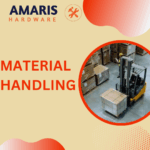
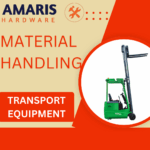 Transport Equipment: Carts, Dollies, and Hand Trucks
Transport Equipment: Carts, Dollies, and Hand Trucks Storage Solutions: Pallets, Racks, and Containers
Storage Solutions: Pallets, Racks, and Containers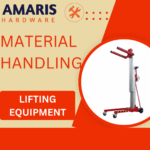 Lifting Equipment: Hoists, Cranes, and Jacks
Lifting Equipment: Hoists, Cranes, and Jacks Conveyors & Accessories: Belts & Rollers
Conveyors & Accessories: Belts & Rollers
 Office Chairs
Office Chairs